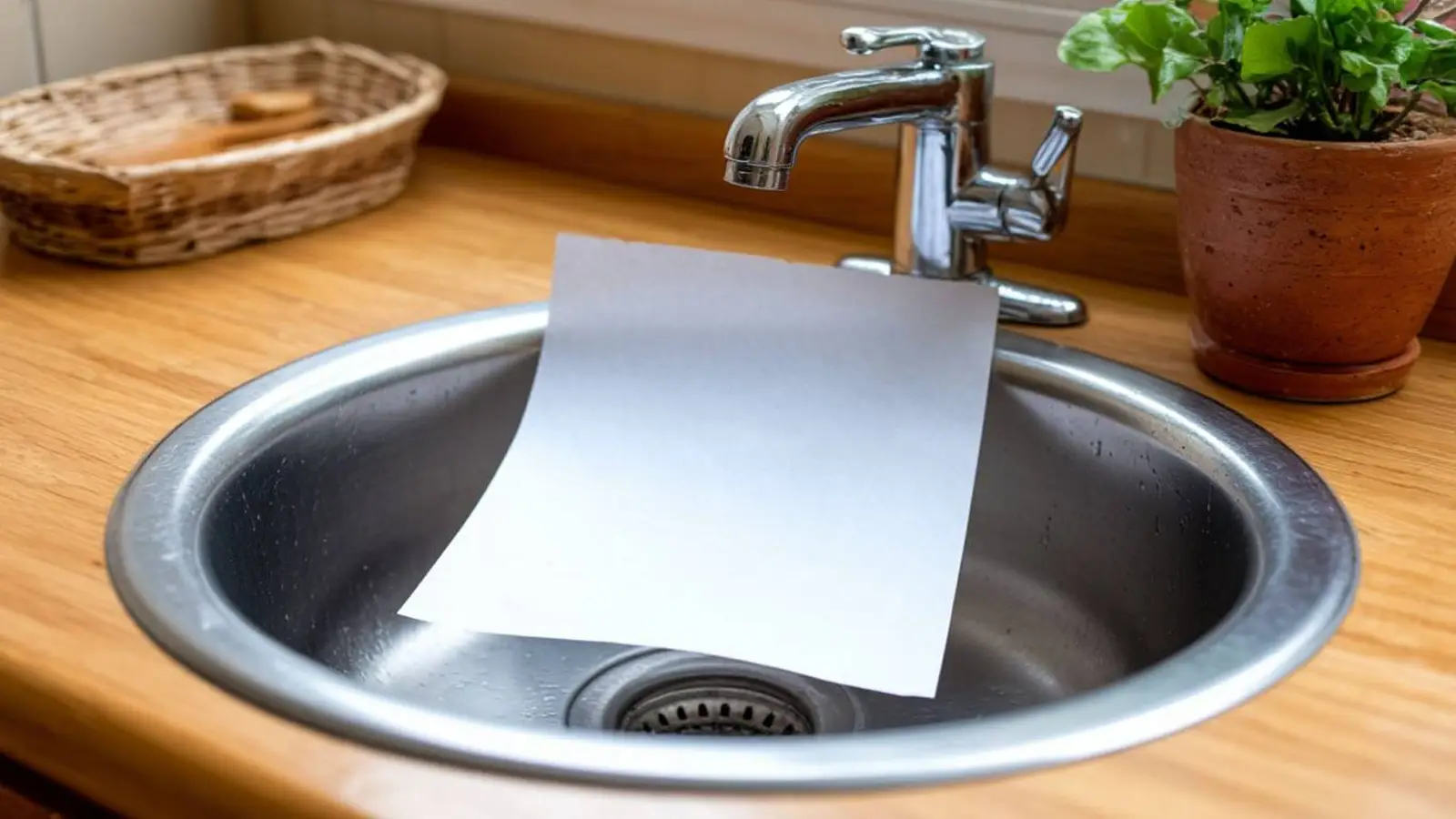https://boda.su/en/posts/id1281-stop-sink-odors-fast-paper-trick-and-mustard-drain-fix
Stop sink odors fast: paper trick and mustard drain fix
Stop sink smells with paper, mustard, and siphon cleaning
Stop sink odors fast: paper trick and mustard drain fix
Kitchen drain smells? Learn how dried water traps cause odors, use a paper cover to block airflow, clear grease clogs with dry mustard, and clean the siphon.
2025-11-25T22:39:26+03:00
2025-11-25T22:39:26+03:00
2025-11-25T22:39:26+03:00
Plenty of people know the moment: you come back from vacation, open the door, and catch a faint whiff of sewage. It may sound mundane, but the main culprit is a dried‑out water trap. The siphon in the pipe’s bend works like a seal that holds odors inside the drain. When the water evaporates, the smell slips into the home—especially if you’re away often or on holiday.A sheet of paper stops the smellSeasoned homeowners rely on a simple fix. Before leaving, place a sturdy sheet of paper over the drain and weigh it down lightly with a plate. The paper blocks airflow, and the dish keeps it in place. In practice, this works better than many folk tips. Pouring vegetable oil into the drain, by contrast, is a bad idea: oil sticks to the pipe walls and builds a greasy layer that turns into a clog.Mustard and a string for clearing the drainIf the drain gets clogged, mustard can help. Dry mustard dissolves grease and helps clear even old blockages. The string trick goes like this:Tie a string to the strainer.Close the drain.Pour in hot water and add 3–5 spoonfuls of dry mustard.Pull the string so the mixture rushes through the pipes, dissolving grease.The method is inexpensive, safe, and really works.What to do if the smell is strongIf the odor has already appeared, take the siphon apart, rinse it, and remove leftover grease and food. Sometimes it’s easier to replace the siphon with a new one—it costs from 200 rubles and solves the problem for a long time.Sinks don’t smell for no reason; it’s either a dried water trap or clogs in the pipes. Simple routines—paper, mustard, and cleaning the siphon—help keep the kitchen fresh.
sink smell, drain odor, dried water trap, siphon cleaning, paper trick, dry mustard, unclog grease, kitchen sink, sewer smell, fix drain odor, clean siphon, home tips, prevent drain smells
2025
articles
Stop sink smells with paper, mustard, and siphon cleaning
Kitchen drain smells? Learn how dried water traps cause odors, use a paper cover to block airflow, clear grease clogs with dry mustard, and clean the siphon.
Изображение сгенерировано нейросетью Dall-e
Plenty of people know the moment: you come back from vacation, open the door, and catch a faint whiff of sewage. It may sound mundane, but the main culprit is a dried‑out water trap. The siphon in the pipe’s bend works like a seal that holds odors inside the drain. When the water evaporates, the smell slips into the home—especially if you’re away often or on holiday.
A sheet of paper stops the smell
Seasoned homeowners rely on a simple fix. Before leaving, place a sturdy sheet of paper over the drain and weigh it down lightly with a plate. The paper blocks airflow, and the dish keeps it in place. In practice, this works better than many folk tips. Pouring vegetable oil into the drain, by contrast, is a bad idea: oil sticks to the pipe walls and builds a greasy layer that turns into a clog.
Mustard and a string for clearing the drain
If the drain gets clogged, mustard can help. Dry mustard dissolves grease and helps clear even old blockages. The string trick goes like this:
- Tie a string to the strainer.
- Close the drain.
- Pour in hot water and add 3–5 spoonfuls of dry mustard.
- Pull the string so the mixture rushes through the pipes, dissolving grease.
- The method is inexpensive, safe, and really works.
What to do if the smell is strong
If the odor has already appeared, take the siphon apart, rinse it, and remove leftover grease and food. Sometimes it’s easier to replace the siphon with a new one—it costs from 200 rubles and solves the problem for a long time.
Sinks don’t smell for no reason; it’s either a dried water trap or clogs in the pipes. Simple routines—paper, mustard, and cleaning the siphon—help keep the kitchen fresh.

